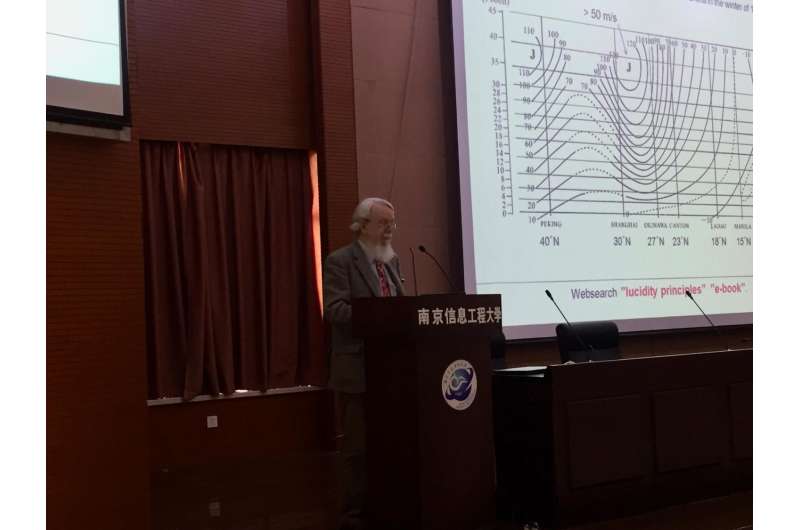Scientist emphasizes importance of multi-level thinking

A new paper touches on a range of deep questions within and outside the atmospheric sciences, including insights into the nature of science itself, and of scientific understanding—what it means to understand a scientific problem in depth—and into the communication skills necessary to convey that understanding and to mediate collaboration across specialist disciplines. "On multi-level thinking and scientific understanding" appears in the October issue of Advances in Atmospheric Sciences. The author is Professor Michael Edgeworth McIntyre from University of Cambridge, whose work in atmospheric dynamics is well known. He also has longstanding interests in astrophysics, music, perception psychology, and biological evolution.
One of Professor McIntyre's themes is that humans have innate mathematics, including Euclidean geometry and the calculus of variations. This is easy to demonstrate, and is key to understanding not only how science works, but also, for instance, how music works. Macintyre discusses some of the deepest connections between music and mathematics, going beyond the usual remarks about number patterns. All this revolves around the biological significance of what Professor McIntyre calls the "organic-change principle."
Other themes include the scientific value of looking at a problem from more than one viewpoint, and the need to use more than one level of description. Many scientific and philosophical controversies stem from confusing one level of description with another, for instance, applying arguments to one level that belong on another. This confusion can be especially troublesome when it comes to questions about human biology and human nature, and about what Professor YE calls multi-level orderly human activities.
Related to all these points are the contrasting modes of perception and understanding offered by the brain's left and right hemispheres. Our knowledge of their function has progressed far beyond the narrow clichés of popular culture, thanks to recent work in the neurosciences. The two hemispheres automatically give us different levels of description, and complementary views of a problem. Good science takes advantage of this. When the two hemispheres cooperate, with each playing to its own strengths, our problem-solving is at its most powerful.
The paper ends with three examples of unconscious assumptions that have impeded scientific progress in the past. Two of them are taken from Professor McIntyre's main areas of research. A third is from biology.
More information: Michael Edgeworth McIntyre, On multi-level thinking and scientific understanding, Advances in Atmospheric Sciences (2017). DOI: 10.1007/s00376-017-6283-3
Provided by Chinese Academy of Sciences


















